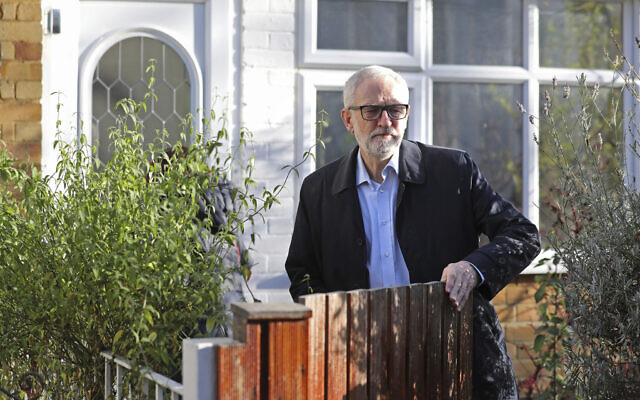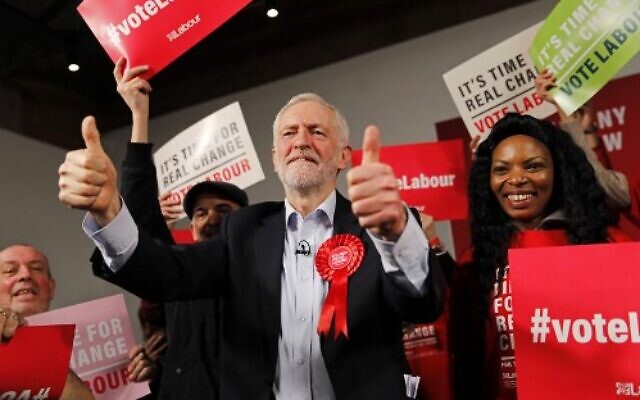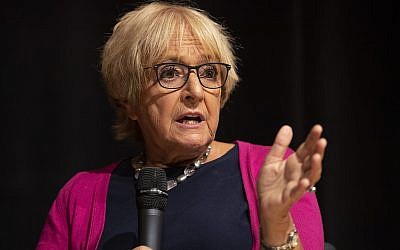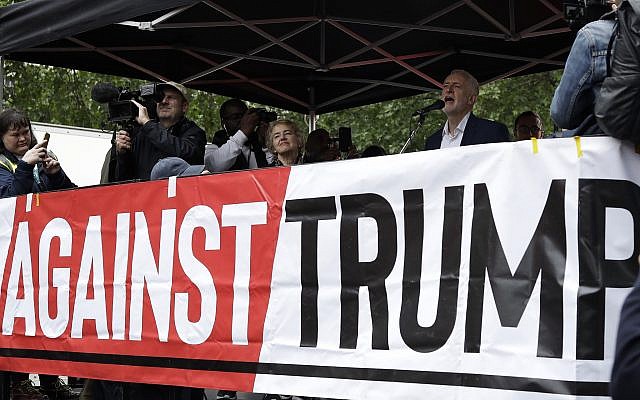UK party leader says he is sorry for the shellacking at the polls, insists opposition needs better strategy against ‘billionaire-owned and influenced’ media

Pointing a finger at “billionaire-owned and influenced” media and the Brexit debate for Labour’s crushing defeat in the UK’s elections, party leader Jeremy Corbyn nonetheless said Saturday that he took some responsibility the party being thrashed in the polls.
“We have suffered a heavy defeat, and I take my responsibility for it,” Corbyn wrote in an opinion piece published by The Guardian late Saturday.
Calls for Corbyn’s head have intensified within the Labour party since December 12, after the ruling Conservatives, led by Prime Minister Boris Johnson, won 365 seats in the House of Commons, its best performance since party icon Margaret Thatcher’s last victory in 1987, while Labour slumped to 203 seats, its worst showing since 1935.
Corbyn indicated Friday he would step down after a leadership vote early next year after initially saying he would stay on to steer the party through a “period of reflection.”
Many in the party have said that Corbyn’s leadership style, his socialist policies and accusations of anti-Semitism against him played a part in sinking the party’s fortunes. However Corbyn and his backers have blamed an inability to connect with voters on the looming divorce from the European Union and intense media hostility for ballot box beating.

In his op-ed, Corbyn reiterated the view that it was the party’s decision to try to make the vote about more than Brexit, or challenge the results of the 2016 referendum, that had hurt it in the polls.
“The polarisation in the country over Brexit made it more difficult for a party with strong electoral support on both sides. I believe we paid a price for being seen by some as trying to straddle that divide or re-run the referendum,” he wrote.
He also pointed blame at “the media attacks on the Labour party for the last four and a half years,” which he described as “more ferocious than ever.”
“Anyone who stands up for real change will be met by the full force of media opposition,” he wrote. “The party needs a more robust strategy to meet this billionaire-owned and influenced hostility head-on and, where possible, turn it to our advantage.”
In a letter published in the Sunday Mirror he made many of the same points. “I’m sorry that we came up short and I take my responsibility for it,” he wrote.

He made no mention of the anti-Semitism scandals that have rocked the party in either piece, and he claimed that his hard-line socialist agenda had, rather than turn away voters, “won the arguments and rewritten the terms of political debate.”
Britain’s chief rabbi had suggested anti-Semitism was a “new poison” within the party, which had been “sanctioned from the very top.” Corbyn failed to dampen the row during a television interview with the BBC, side-stepping repeated chances to apologize to Britain’s Jewish community.
Asked by the BBC on Friday whether he was to blame for the party’s showing, he responded that “I’ve done everything I could to lead this party… and since I became leader the membership has more than doubled and the party has developed a very serious, radical yes, but serious and fully-costed manifesto.”

A survey on election day among voters who said they were not backing Labour found 43% cited the party leadership as the prime reason, followed by its Brexit stance (17%) and its economic policies (12%).
Former lawmaker Helen Goodman, one of many Labour legislators to lose seats in northern England, told BBC radio that “the biggest factor was obviously the unpopularity of Jeremy Corbyn as the leader.”
“Our fudge on Brexit was an issue. It was Jeremy’s own leadership that I met time and time on the doorstep, it was the economics we offered, they liked ideas but didn’t believe it, they see us as a nasty party and that comes from anti-Semitism,” added Hodge, who is Jewish.
Len McCluskey, head of the Unite trade union, who backed Corbyn all the way up to the election, turned on him Saturday, calling his manifesto an “incontinent rush of policies which appeared to offer everything to everyone immediately… strained voter credulity [while] obscuring the party’s sense of priorities.”
In an article for the HuffPost UK, the labor leader also blamed Corbyn’s “failure to apologise for anti-Semitism in the party when pressed to do so, capping years of mishandling of this question.”
Jewish Labour MP Ruth Smeeth, who lost her seat to the Conservatives, urged Corbyn to “announce he is resigning as leader of the Labour Party from his count today. He should have gone many, many, many months ago.”
Smeeth has headed the Jewish Labour Movement, which broke with Corbyn ahead of Thursday’s election, accusing him of anti-Semitism.
“We have become the racist party, the nasty party because of the actions of our leader and the lack of actions of our leader,” she said.

Corbyn early Friday indicated his desire to preside over a period of “reflection” in which the party would regroup, a strategy that seems designed to make sure that “Corbynism” — his embrace of European-style socialism with an expanded role for the state — does not end once he is replaced.
He may face stiff opposition, however, from Labour figures who want the party to move back to the political center, as defined by more successful figures including Tony Blair, Gordon Brown and even Ed Miliband, who was beaten by the Conservatives in 2015 but did not suffer a drubbing of this magnitude.
As reported by The Times of Israel
